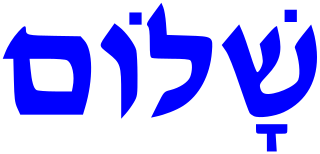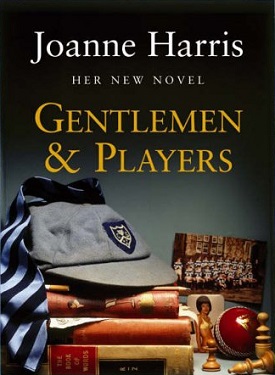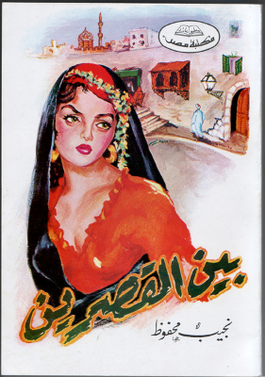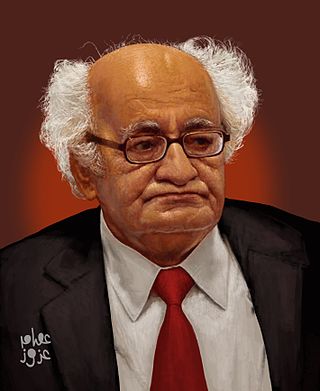
Naguib Mahfouz Abdelaziz Ibrahim Ahmed Al-Basha was an Egyptian writer who won the 1988 Nobel Prize in Literature. Mahfouz is regarded as one of the first contemporary writers in Arabic literature, along with Taha Hussein, to explore themes of existentialism. He is the only Egyptian to win the Nobel Prize in Literature. He published 35 novels, over 350 short stories, 26 screenplays, hundreds of op-ed columns for Egyptian newspapers, and seven plays over a 70-year career, from the 1930s until 2004. All of his novels take place in Egypt, and always mentions the lane, which equals the world. His most famous works include The Cairo Trilogy and Children of Gebelawi. Many of Mahfouz's works have been made into Egyptian and foreign films; no Arab writer exceeds Mahfouz in number of works that have been adapted for cinema and television. While Mahfouz's literature is classified as realist literature, existential themes appear in it.

Adventures of Wim is a book by George Cockcroft, written under the pen name Luke Rhinehart. It was first published in 1986.

Shalom is a Hebrew word meaning peace and can be used idiomatically to mean hello.
The Cairo Trilogy is a trilogy of novels written by the Egyptian novelist and Nobel Prize winner Naguib Mahfouz, and one of the prime works of his literary career.

The Journey of Ibn Fattouma is an intermittently provocative fable written and published by Nobel Prize-winning author Naguib Mahfouz in 1983. It was translated from Arabic into English in 1992 by Denys Johnson-Davies and published by Doubleday.
Timothy James "Matthew " Fox is an American priest and theologian. Formerly a member of the Dominican Order within the Catholic Church, he became a member of the Episcopal Church following his expulsion from the order in 1993.

Children of Gebelawi is a novel by the Egyptian writer and Nobel laureate Naguib Mahfouz. Its Egyptian dialectal transliteration is Awlad Haretna. An alternative English title is Children of the Alley.

Rūḥ or The Spirit is mentioned twenty one times in the Quran, where it is described as issuing from command of God. The spirit acts as an agent of divine action or communication.
Islamic literature is literature written by Muslim people, influenced by an Islamic cultural perspective, or literature that portrays Islam. It can be written in any language and portray any country or region. It includes many literary forms including adabs, a non-fiction form of Islamic advice literature, and various fictional literary genres.

Gentlemen & Players is a novel by Joanne Harris first published in 2005. A dark psychological thriller, some of the themes may be partly based on Harris' experiences as a teacher at Leeds Grammar School. Set in the present day during Michaelmas term at St Oswald's, a grammar school for boys somewhere in the North of England, the book is a psychological thriller about class distinctions, damaged childhood, secrets, identity and revenge.

My Name Is Red is a 1998 Turkish novel by writer Orhan Pamuk translated into English by Erdağ Göknar in 2001. The novel, concerning miniaturists in the Ottoman Empire of 1591, established Pamuk's international reputation and contributed to his reception of the Nobel Prize in Literature in 2006.

Palace Walk is a novel by Nobel Prize winning Egyptian writer Naguib Mahfouz, and the first installment of Mahfouz's Cairo Trilogy. Originally published in 1956 with the title Bayn al-qasrayn, the book was then translated into English by William M. Hutchins and Olive Kenny, and then published by Doubleday (publisher) in 1990. The book's Arabic title translates into 'between two palaces'. The setting of the novel is Cairo around the time period of World War I. It begins in 1917, during World War I, and ends in 1919, the year of the Egyptian Revolution of 1919. The novel is written in a social realist style and reflects the social and political setting of Egypt in during 1917 to 1919.

Dublin: Foundation (2004) is a novel by Edward Rutherfurd first published in 2004 by Century Hutchinson and then by Seal Books and Doubleday Canada.

Prince of the Blood is a fantasy novel by American writer Raymond E. Feist. It is the first book of the Krondor's Sons series and was published in 1989. It was later followed by The King's Buccaneer in 1992. A 15th anniversary "author's preferred" edition with portions of the book significantly rewritten was released in 2004. The novel focuses on Borric and Erland conDoin, and their personal growth as they journey to the Empire of Great Kesh and unwittingly become involved in a plot against both their own lives and the Empress herself.

Khairy Shalaby was an Egyptian novelist and writer. He wrote some 70 books, including twenty novels, critical studies, historical tales, plays and short story collections. Khairy is widely regarded as having written novels “of the Egyptian street.”

Wedding Song also known as joys of the dome is a 1981 Arabic-language novel by Naguib Ma0hfouz. In the novel a narrator tells and retells the story of a marriage, each time from different character's perspective. In Naguib Mahfouz's 1981 novel Wedding Song, the narrator tells and retells the story of a marriage from the very different perspectives of the main characters, deepening the reader's understanding of “what happened in the end we read the true story by the main narrator ." In ramadan of 2016 there was an Egyptian TV series with same name.

The Mirage is a 1948 Egyptian novel by Naguib Mahfouz. The novel was filmed as al-Sarab by Anwar al-Shinawi. Mahfouz has said that it is a personal novel based on his upbringing. Novel translated to English by Nancy Roberts.
Roger Allen is an English scholar of Arabic literature. He has translated several Arabic works of literature into English, and has also written scholarly works on Arabic literature.

Zaabalawi is a symbolic story written by the Egyptian writer Naguib Mahfouz, winner of the Nobel Prize in Literature in 1988. It was first published in 1961 and reprinted within the collection of God's World. in 1972. Issues affecting restrictions and customs and sometimes rebellion against controls, which causes writers and philosophers in general many troubles. Some of Mahfouz's writing were influenced by philosophical literature which allowed him to raise some questions about the social and traditional restrictions and sometimes it rebel on the regulations, and that causes many troubles to the authors and to the philosophers generally. Mahfouz was speaking about his late schooling and he said, speaking of his late schooling.. "The relationship between me and Sheikh Ajaj was very friendly. He was a fan of my writing style, He also considered my construction topics as role models for students." In this period, my view of religion was characterized by some emancipation, but I emphasize that it was a liberal view and not an infidel. For example, I was writing a topic about the great people of history and I put Muhammad among them. Sheikh Ajaj considered this offensive to the prophet." Zaabalawi contains a Sufi theme, Mahfouz mentions that he is interested in the Sufi ideas by saying: "When I set to myself a program of self-education at the beginning of my life, a large part of this program was about studying major religions and the history of civilization, and I was interested in the Sufi and Islamic writings. Although I do not believe in the ideas and beliefs of Sufism as the Sufis believe, I found in reading their books and contemplated great mental and psychological comfort. In Sufism I was attracted by the idea of spiritual supremacy.”
Sugar Street, first published in 1957, is the third novel in the Cairo Trilogy by Egyptian novelist Naguib Mahfouz. In this third novel, the main character Kamal, the youngest son of Ahmad 'Abd al-Jawad who is a young child in the first and a student in the second, is a teacher.













